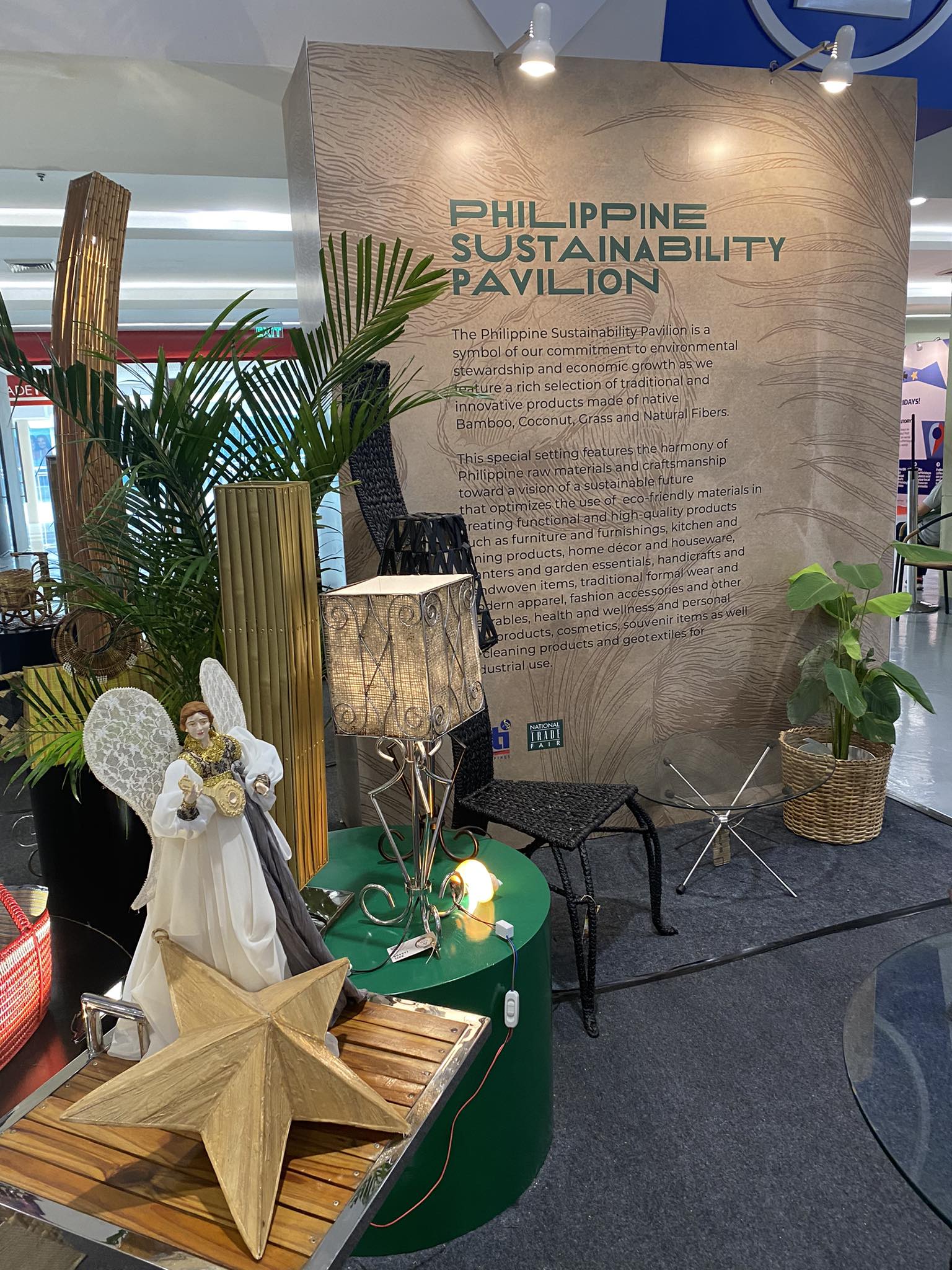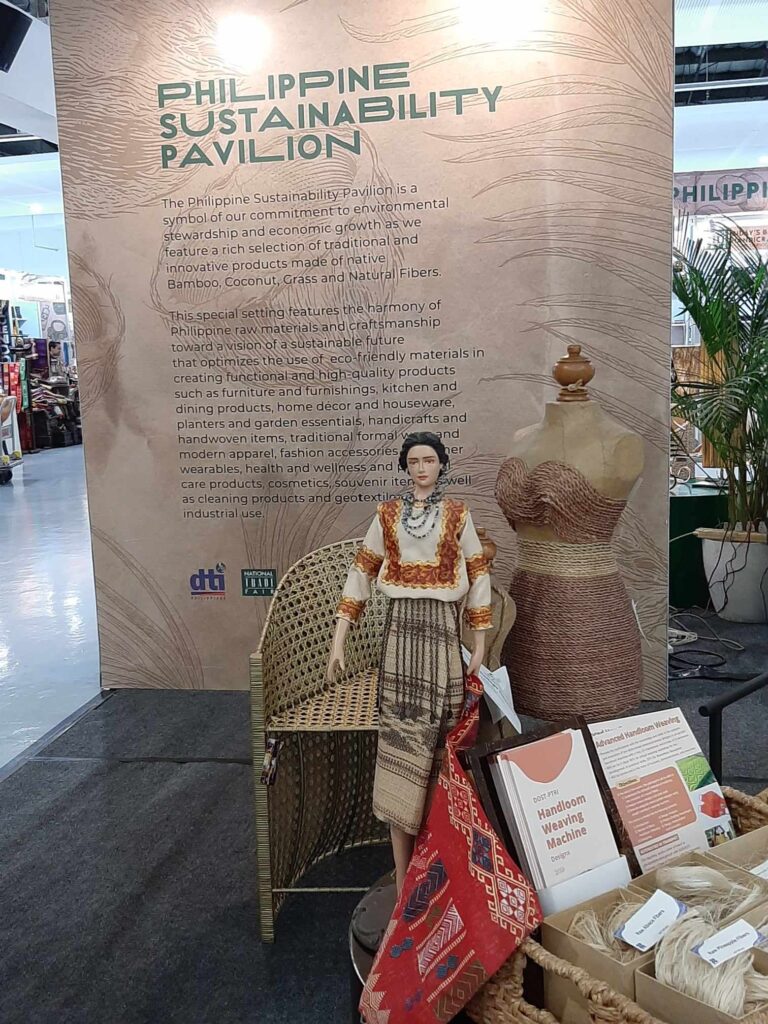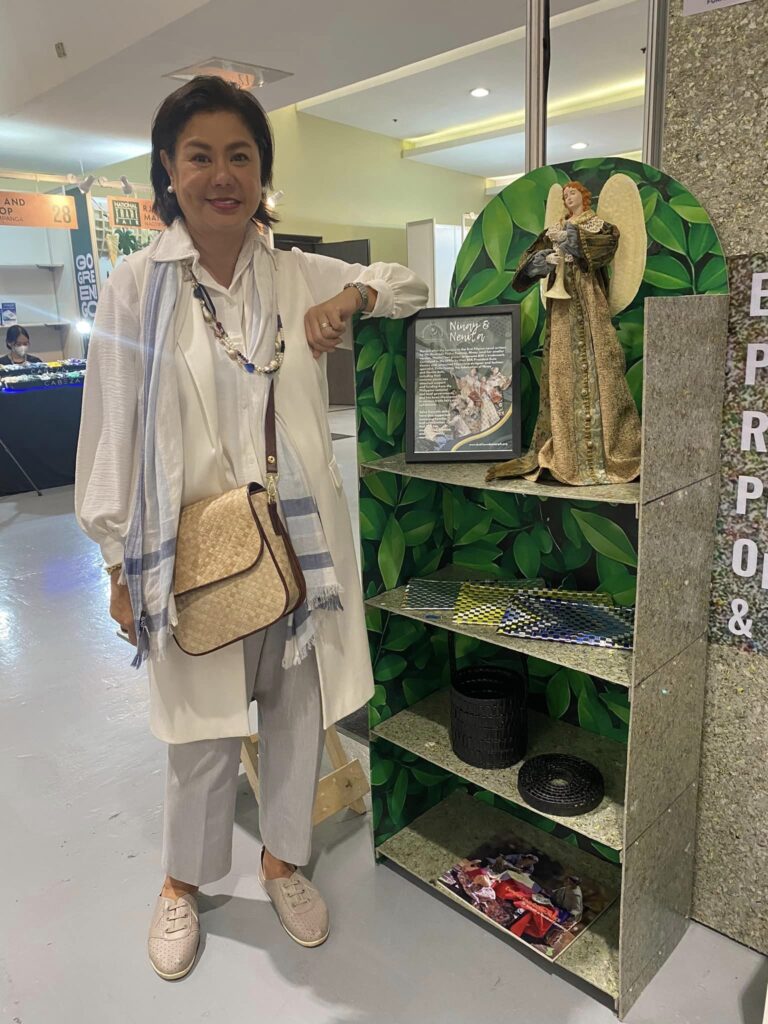BSK's Ninay and Nenita Dolls Showcased by WASTO at DTI's National Trade Fair
Balikatan sa Kaunlaran (BSK) National Foundation partners Ecohome Art and Wasto Waste Solutions by Alpha Distinct Development Solutions, Inc. showcased as part of their exhibition the Foundation's renowned Ninay and Nenita dolls as well as Christmas angels during the recently concluded National Trade Fair of the Department of Trade and Industry on August 23-27, 2023 at the SM Megamall.

Invited by the DTI to design the Philippine Sustainability Pavilion with his selections from Ecohome Art, Noel Tañada included BSK’s dolls – wearing various iterations of traditional Filipina dress from scrap textiles and fabrics sourced from fashion designers around the country put together by families supported by the Foundation – as centerpieces of his equally gorgeous and functional creations.
BSK’s dolls were a fitting showcase of sustainability not only for the scrap textiles but also for their soon-to-be rolled-out plastic upcycled bases made possible by the innovative technology and design of Wasto Waste Solutions – a new brand conceptualized by Alpha Distinct Development Solutions, Inc. led by BSK’s very own National President Michelle Bautista-Tañada.
Design and Sustainability Convergence
Over the past months, BSK’s National President has been tirelessly working to promote sustainable production and consumption practices across various sectors by building partnerships with the private sector, academic institutions, and other civil society organizations. As a Board Member of the National Council of Women of the Philippines (NCWP), Tañada is spearheading the Council’s Environment Cluster which launched the W.O.W. or Women on Waste Program with the goal of capacitating Filipino women on innovations in waste management.
Industry partners such as Sentinel UpCycling Technologies and non-government organization Heirs of the World (H.O.W.) are also providing support for Tañada’s initiatives.
The Philippines, like many other developing nations, grapples with the negative impacts of improper waste management. Inadequate recycling facilities, limited awareness, and a disposable culture have contributed to the proliferation of waste in communities and ecosystems. Addressing this challenge requires a multi-faceted approach that involves not only efficient recycling systems but also a shift in mindset towards waste reduction, resource recovery, and sustainable consumption.
Upcycling Technologies: From Trash to Treasure
Upcycling technologies have emerged as a powerful tool in transforming waste materials into valuable products, thereby reducing the burden on landfills and conserving resources. Innovations such as plastic bottle brick construction, where discarded plastic bottles are transformed into building blocks, showcase the potential of turning waste into functional items. These technologies engage communities and families in repurposing waste materials, instilling a sense of creativity and environmental responsibility.
Bridging the Gap with Creative Design
Aesthetic and functional design solutions are key to bridging the gap between household waste practices and the capacity of industries to recycle. When products are designed with recycling in mind, they become more likely to be properly sorted and repurposed. Moreover, creative design adds value to recycled products, encouraging consumers to choose eco-friendly options over conventional ones. Filipino families are increasingly drawn to products that align with their values, and well-designed recycled goods offer a tangible way to contribute to waste resource recovery.


Upcycling technologies and innovative design also play a crucial role in promoting Extended Producer Responsibility (EPR). This concept shifts the onus of waste management from consumers to manufacturers, encouraging them to design products that are more easily recyclable and to take responsibility for the end-of-life phase of their products. As families become more discerning in their product choices, demand for goods that adhere to EPR principles grows, prompting industries to adopt sustainable practices.
